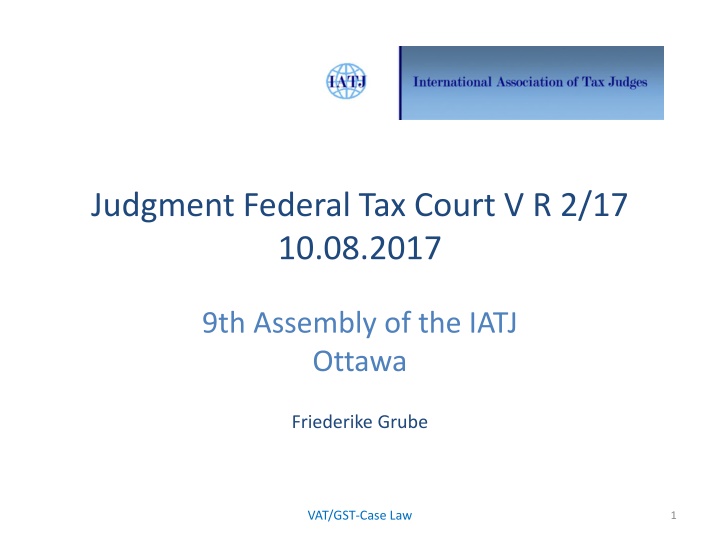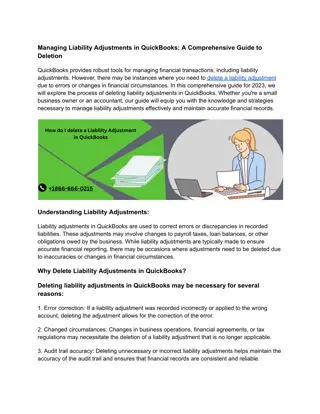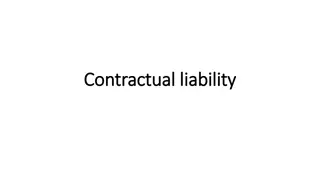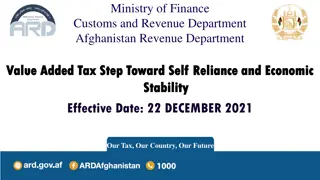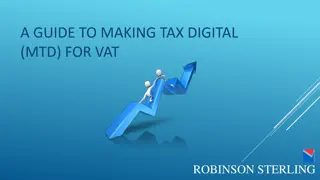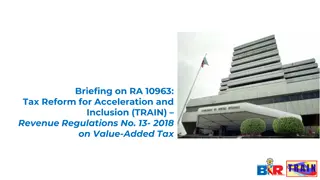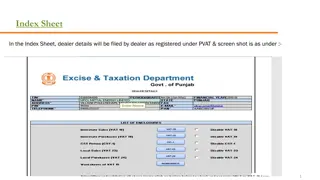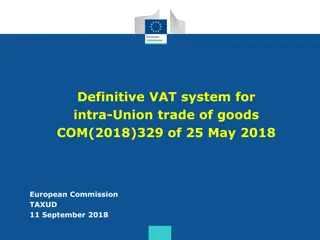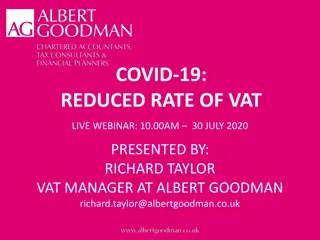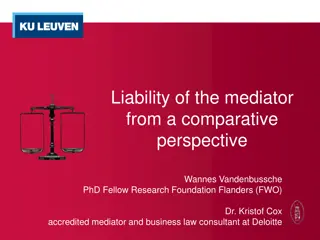Dispute over VAT Liability in Car Purchase Case
Cartrader A bought cars from B Ltd., paid VAT, but B Ltd. didn't remit VAT. C involved in evasion. A held liable initially, successful appeal against VAT evasion assessment. Dispute over A's knowledge of C's intentions.
Download Presentation

Please find below an Image/Link to download the presentation.
The content on the website is provided AS IS for your information and personal use only. It may not be sold, licensed, or shared on other websites without obtaining consent from the author.If you encounter any issues during the download, it is possible that the publisher has removed the file from their server.
You are allowed to download the files provided on this website for personal or commercial use, subject to the condition that they are used lawfully. All files are the property of their respective owners.
The content on the website is provided AS IS for your information and personal use only. It may not be sold, licensed, or shared on other websites without obtaining consent from the author.
E N D
Presentation Transcript
Judgment Federal Tax Court V R 2/17 10.08.2017 9th Assembly of the IATJ Ottawa Friederike Grube VAT/GST-Case Law 1
The facts of the case (1) Cartrader A bought several cars from B Ltd. A received invoices about these purchases from B Ltd. in january 2012 and payed the whole sum including VAT to B Ltd. B Ltd. did not pay any VAT with regard to these invoices to the tax authorities (MT) The managing director of B Ltd. was C who in the past also worked for other firms having business connections with A VAT/GST-Case Law 2
The facts of the case (2) The CISTE (Commission for investigation of suspected tax evasion) examined several cases with C being involved The District Court decided that C had committed evasion of VAT with regard to the supplies of january 2012 CISTE had already informed A about the investigations against C It was a matter of dispute between the parties whether A knew about these special circumstances already at an earlier stage VAT/GST-Case Law 3
The facts of the case (3) The taxoffice made A liable for the evasion of VAT committed by C 25d par. 1 VAT-Code says that the taxable person is liable for the VAT concerning the previous supply of goods provided that the VAT has been revealed in an invoice and that the issuer of the invoice did not pay the VAT according to his (bad) intention beforehand and that the taxable person knew or should have known about this (bad) intention taking into account the view of a careful businessman at the time of councluding the agreement about the supply of the goods VAT/GST-Case Law 4
The facts of the case (4) The action against this assessment of VAT was successful The Financial Court of First Instance decided that the taxoffice had now right to make A liable for the evasion of VAT committed by C The taxoffice brought an appeal on a point of law against that judgment before the Federal Tax Court It argued that A knew or had reasonable ground to suspect the (bad) intention of C not to pay VAT concerning the supplies carried out in 01/2012 VAT/GST-Case Law 5
Judgment of the Federal Tax Court (1) The Court dismissed the appeal of the taxoffice The Court stated that the requirements for the liability of A were not fulfilled The taxoffice was not able to prove that A knew or should have known anything about the (bad) intentions of C to commit an evasion of VAT concerning the supplies of cars to A VAT/GST-Case Law 6
Judgment of the Federal Tax Court (2) The provision in 25d VAT-Code must fulfil the requirements of the principle of certainty and the principle of proportionality: The ECJ stated before that traders who take every precaution which could reasonably be required of them to ensure that their transactions do not form part of a chain which includes a transaction vitiated by VAT fraud must be able to rely on the legality of thouse transactions without the risk of being made jointly liable to pay the VAT due from another taxable person (eg: ECJ judgment 11. May 2006 C-384/04, Fed. of Technological Industries) VAT/GST-Case Law 7
Judgment of the Federal Tax Court (3) It would therefore constitute a violation of the principle of proportionality if the fact that A just knew something about the investigations of the CISTE against C would lead inevitably to the liability of A In this case no further prove was found that A should have known anything about the (bad) intentions of C beforehand In this case it was not decisive to find out whether the principle of proportionality would allow a liability based on 25d Par. 1 VAT-Code as well as the denial of deduction of Input-VAT applying the ECJ-Judgments Italmoda etc. at the same time . VAT/GST-Case Law 8
Discussion Burden of proof -Concerning the conditions of 25d VAT-Code the burden of proof is with the taxoffice - This is the reason why it is very difficult to apply this provision in reality Principle of proportionality If it might be possible to deny the right to deduct Input- VAT and furthermore the exemption for an intracommunity supply in case of abuse of the law: Is the principle of proportionality violated if in addition to that a liability for the VAT of the MT is established for a taxable person also involved in the chain of supplies? VAT/GST-Case Law 9
Thank you for your attention!!! VAT/GST-Case Law 10
